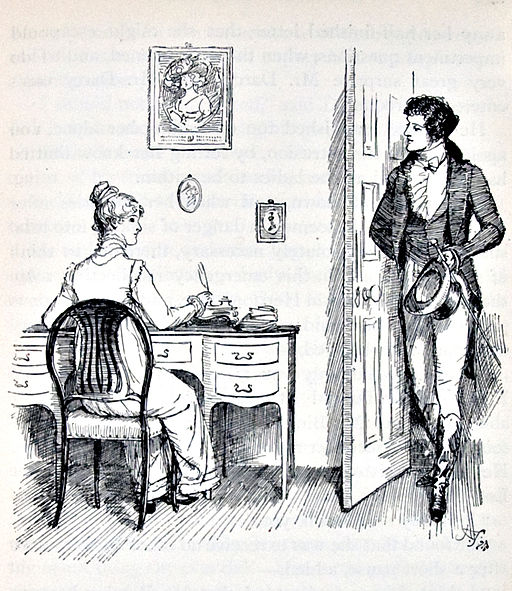 |
| Living my Jane Austen fantasy |
I just curl up in my bed and binge watch screen adaptations of Jane Austen novels or any good costume drama, science fiction series or even fantasy; for what can be better than some good old escapism? Does it answer the question? No! Does it help me forget it? Yes!
So last summer when I received an email from the Graduate Research School of my university regarding a Life Beyond PhD conference being held at Cumberland Lodge, Windsor; I jumped with excitement. I knew I wanted to go for it the moment I saw the pictures of the Lodge. Not unlike Pride and Prejudice protagonist Ms Elizabeth Bennet who started seeing Mr Darcy in a favourable light after visiting Pemberley. Don’t get me, or Ms Bennet, wrong for we both saw the merit in the conference and Mr Darcy respectively, but their residences certainly recommended them.
Here was an opportunity blending my fantasy and reality - a four night residential conference with hospitality in the actual former residence of a real-life princess…. hello Disney! What more could I have asked for? (*cough*… Cumberland Lodge Scholarship …*cough*). The conference programme was designed to highlight the value of PhDs (both within academia and industry) and it also promised opportunities for sharing research and career aspirations, exploring collaborative and interdisciplinary ways of working, and presenting to a diverse, non-expert audience.
My supervisor considered it to be a good opportunity for me; owing to the nature of my PhD which marginally borders on public engagement in research and public health. She was kind enough to recommend me to the school for sponsorship and I daydreamed my way to the Windsor great park on a balmy summer afternoon.
My supervisor considered it to be a good opportunity for me; owing to the nature of my PhD which marginally borders on public engagement in research and public health. She was kind enough to recommend me to the school for sponsorship and I daydreamed my way to the Windsor great park on a balmy summer afternoon.
 |
| Conference delegates |
The second day centred around PhD researcher development with sessions on self-leadership, speaking and writing techniques, and wellbeing and mental health. Unsurprisingly the session on mental wellbeing: research-based thoughts, issues and toolkit commanded most delegate participation, as the mental health of a PhD researcher is almost always never considered in academia. The conference drew delegates from disciplines across science, art and literature and yet everyone identified with mental health issues in PhD life!
 |
| Me and fellow Teesside University PhD researcher David Oluwadere |
The fourth day focussed on interdisciplinary research and working in designated groups we were challenged to address a problem by developing interdisciplinary research proposals within the day. These proposals were pitched to a panel of judges in order to seek funding. This was an exercise in developing our collaborative skills and emphasised the importance of interdisciplinary approaches to problem solving. It also demonstrated how a problem is viewed differently by people from various disciplines. Humble brag, but the team I was part of, won the proposal contest and were gifted a box of chocolates.
 |
| Winners of the interdisciplinary research proposal contest |
The conference closed with a session on, “Why is a PhD worth it?”. In addition to the conference presentations which were highly informative and relevant, I will always remember the experience for living in a historic aristocratic building, ‘taking a turn’ about the Windsor great park (channelling heroines of Jane Austen and Charlotte Bronte), the late night banter with friends in the sitting rooms of the lodge, playing games and striking the keys of an out of tune piano in the basement in evenings, and being served dinner in a fashion reminiscent of Downton Abbey.
If you feel that this is something for you (fantasising is optional), visit the the Cumberland Lodge website to find out more.
Getting a job after PhD is subject to availability and visa status, but life beyond PhD is open to endless possibilities. So, I believe that instead of speculating about the future, we should try to live in the moment and savour the #phdlife while it lasts!
Images:
- 1: Hugh Thomson (1860-1920) [Public domain], via Wikimedia Commons: https://commons.wikimedia.org/wiki/File:Thomson-PP14.jpg
- 2 & 4: courtesy of Priyanka Vasantavada
- 3 & 5: courtesy of @CumberlandLodge


Sounds exciting and refreshing.. all the best to all PhD students out there for an exciting life ahead after PhD.
ReplyDeleteThank you :)
Delete